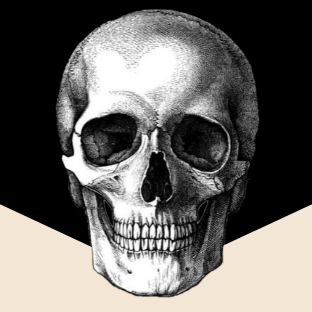Grandma always blamed the pain in her arthritic knees on the diner.
Anna was a small-framed, round-shouldered, stately old woman dressed in black. She had sunken cheeks on a round, wrinkled face, topped with thinning white hair made a bit blue during Easter and Christmas. Her small, dark eyes, sharply observing, and her thin lips almost, barely, hinting a smile—that’s how she looked. She was a good listener and her few words were well chosen.
She emigrated to the United States, to New York, from Hungary in 1920, when she was thirteen years old.
“Jamaica, Queens,” she used to comment, a bit of short of breath. “Oh, I think about working the counter—we had ten seats, you know, the round red-cushion kind with chrome rings all around? The seats would spin around; their bases were bolted to the floor. Black and white tiles throughout, the small octagonal ones popular in the old days. This was 1951. I mopped those and they would sparkle like marble. There were tables, too. Booths, there were four, each would sit four. But not for my knees, all those hours.”
Three years after emigrating, when she was married to a Greek immigrant sixteen years her senior, she had to learn Greek. At eighteen, her first of three sons was born and she raised her boys during the Great Depression. Her knees, deformed by arthritis, never touched, and the pain was such that she rarely stood.
“Papou, your grandfather,” she used to say, “worked in the kitchen, made all the salads, all the desserts, did all the grilling. Me? I took the orders, brought out the food, cleared the tables, and worked the register. It almost never stopped–6:30 in the morning until 4:30 in the afternoon. We didn’t do a dinner business, but lunch and the early hours were very big. We did all right. We sold coffee for a dime. Can you imagine? Ten cents. And if the customer used sugar, oh, sugar was expensive, we didn’t charge more, so when they used one spoon, okay, but two sugars and we lost money.”
The register was at the front of the diner, and another one of her jobs was to check the customers out. “Still on my feet, all those hours,” she recalled. “We were open six days a week, not on Sundays, my knees just couldn’t take it anymore. The price I have to pay.”
Her life was hard and it made her hard and she thought most of what she witnessed— like the everyday joy that we didn’t have to work for—silly. She kept those thoughts to herself, and you had to know her very well to recognize those feelings. I got the impression that she’d saved her love for her grandchildren. I loved her very much.
“Don’t get me wrong, there were fun times too, we knew everybody in the neighborhood, you know, the children, their parents, all the men who worked in the area, the construction men, the sanitation, the cops. Officer Wilson, I think that was his name, maybe not, I don’t remember, Jack Wilson, I think it was; well he gave me this stick, an old billy club.”
“‘Anna, you keep this just below the register, someone gives you trouble, real trouble I mean, you hit them, but whatever you do, don’t hit them in the head or the neck,’ he said. ‘Aim low.’”
Andrew Alexander
MFA, Western Connecticut State University

Photo by Andrew Alexander
